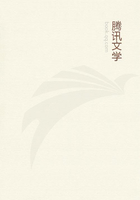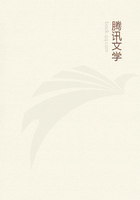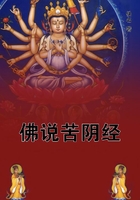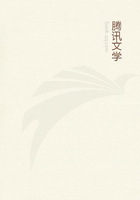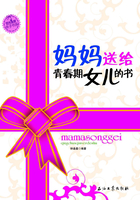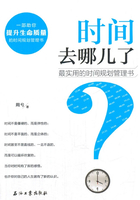France is all round the dupe of these operations. She pays very high prices for foreign goods during the diminutions, sells them back at very low prices at the time of the augmentation to the same foreigners, sells her own merchandise at low prices which she had kept so high during the diminutions and so it would be difficult for all the money which left France during the diminutions to come back during the augmentation. If coins of the new issue are counterfeited abroad, as is nearly always the case, France loses the 20 per cent which the King has established as the Mint charge. This is so much gained for the Foreigner who profits further by the low prices of merchandise in France.
The King makes a considerable profit by the Mint tax, but it costs France three times as much to enable him to make this profit.
It is well understood that when there is a current balance of trade in favour of France against the foreigner the King is able to raise a tax of 20 per cent or more by a new coinage and an increase in the nominal value of coins. But if the trade balance was against France at the time of this new coinage and augmentation the operation would have no success and the King would not derive a great profit from it. The reason is that in this case it is necessary to send money continually abroad. But the old ecu is as good in foreign countries as the new. That being so the Jews and Bankers will give a premium or bonus in secret for the old coins and the individual who can sell them above the Mint price will not take them thither. At the Mint they give him only about 4 livres for his ecu, but the Banker will give him at first 4 livres 5 sols, and then 4 livres 10, and at last 4 livres 15. And this is how it may happen that an augmentation of the coinage may lack success. It can hardly happen when the raising is made after the lowerings indicated, because then the balance naturally turns in favour of France, as we have explained.
The experience of the augmentation of 1726 may serve to confirm all this. The diminutions which had preceded this augmentation were made suddenly without warning, which prevented the ordinary operations of diminutions. This prevented the trade balance from turning strongly in favour of France at the augmentation of 1726, few people took their old coin to the Mint, and the profit of the Mint tax which was in view had to be abandoned.
It is not within my subject to explain the reasons of Ministers for lowering the coinage suddenly nor the reasons which deceived them in their project of the augmentation of 1726. I have mentioned the increases and decreases in France only because their results seem sometimes to clash with the principles I have established that abundance or scarcity of money in a State raises or lowers all prices proportionably.
After explaining the effects of lowering and raising the coinage, as practised in France, I maintain that they neither destroy nor weaken my principles, for if I am told that what cost 20 livres or 5 ounces of silver before the lowering referred to does not even cost 4 ounces or 20 livres of the new money after the augmentation, I will assent to this without departing from my principles, because there is less money in circulation than there was before the diminutions, as I have explained. The difficulties of exchange in the times and operations of which we speak cause variations in the prices of things and in that of the interest of money which cannot be taken as a rule in the ordinary principles of circulation and dealing.
The change in the nominal value of money has at all times been the effect of some disaster or scarcity in the State, or of the ambition of some Prince or individual. In the year A.U.C. 157 Solon increased the nominal value of the drachma of Athens after a sedition and abolition of debt. Between A.U.C. 490 and 512 the Roman Republic several times increased the nominal value of its copper coins, so that their as came to be worth six. The pretext was to provide for the needs of the State and to pay the debts incurred in the first Punic War. This did not fail to cause great confusion. In 663 Livius Drusus, Tribune of the people, increased the nominal value of amount, and this gave occasion to introduce confusion into exchange. In A.U.C. 712 Antony in his Triumvirate increased the nominal of silver by 5 per cent, mixing iron with the silver, to meet the needs of the Triumvirate. Many Emperors subsequently debased or increased coinage. The Kings of France at different times have done likewise. This is why the livre tournois, which was a pound weight of silver has sunk to so little value. These proceedings have never failed to cause disorder in States. It matters little or nothing what is the nominal value of coins provided it be permanent. The pistole of Spain is worth 9 livres or florins in Holland, about 18 livres in France, 37 livres 10 sols at Venice, 50 livres at Parma. In the same proportion values are exchanged between these different countries. The price of everything increases gradually when the nominal valne of coins increases, and the actual quantity in weight and fineness of the coins, taking into account the rapidity of circulation, is the base and regulator of values. A
State neither gains nor loses by the raising or lowering of these coins so long as it keeps the same quantity of them, though individuals may gain or lose by the variation according to their engagements. All people are full of false prejudice and false ideas as to the nominal value of their coinage. We have shown in the Chapter on Exchanges that the invariable rule of them is the price and fineness of the current coins of different countries, marc for marc and ounce for ounce. If a raising or lowering of the nominal value changes this rule for a time in France it is only during a crisis and difficulty in trade. A return is always made little by little to intrinsic value, to which prices are necessarily brought both in the market and in the foreign exchanges.

